#racial equity
Text
#voting priorities#black empowerment#political representation#social justice#racial equity#voting for change#politics
68 notes
·
View notes
Text


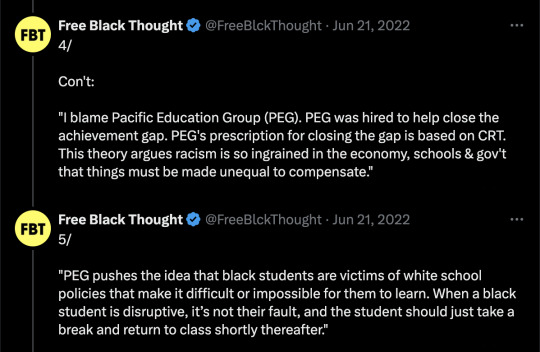
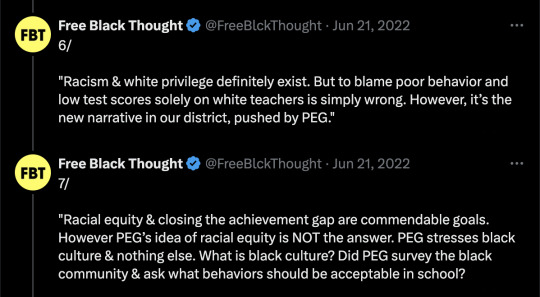
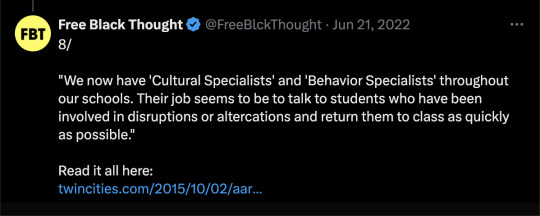
By: Aaron Benner
Published: Oct 2, 2015
I have been an elementary teacher almost all of my adult life, mostly in St. Paul Public Schools. First and foremost, I teach because I love kids, I love schools, I love our city, and I really love what happens when a group of kids becomes a community in a classroom and a school. For this to occur, everybody has to play a part — parents, students, teachers, building and district administration, and the broader community. As a black man, it breaks my heart to watch these communities fall apart and to see some children who look like me behave so poorly in our schools.
In 2011, I addressed the St. Paul School Board. At the time, I told them about my concerns with student behavior at Benjamin E. Mays Elementary School, where I taught sixth grade. I hoped to start a discussion about what I was witnessing. Although the media paid some attention (likely because my race made for an interesting story), the school board ignored me. I addressed the board again on May 20, 2014, regarding the same issues, but this time I was aware they were happening districtwide. Four other brave teachers accompanied me. The school board ignored us again and tried to paint us as anti-racial equity.
From 2013-15, I taught fourth grade at John A. Johnson Elementary (JAJ). The behaviors that I witnessed last year at JAJ were far worse than what I complained to the school board about in 2011 and in 2014. On a daily basis, I saw students cussing at their teachers, running out of class, yelling and screaming in the halls, and fighting. If I had a dollar for every time my class was interrupted by a student running into my room and yelling, I’d be a rich man. It was obvious to me that these behaviors were affecting learning, so when I saw the abysmal test scores this summer, I was not surprised. Out of 375 students, only 14.3 percent were proficient in Reading, 9.6 percent in Math and 9.3 percent in Science. These test scores are not acceptable in any way, shape or form.
I diligently collected data on the behaviors that I saw in our school and completed behavior referrals for the assaults. These referrals were not accurately collected. The school suspended some students, but many more assaults were ignored or questioned by administrators to the point where the assaults were not even documented. I have since learned that this tactic is widely used throughout the district to keep the numbers of referrals and suspensions low.
The parents who complained to the school board last year about behavior at Ramsey Jr. High know all too well about behaviors being ignored. The students of SPPS are being used in some sort of social experiment where they are not being held accountable for their behavior. This is only setting our children up to fail in the future, especially our black students. All of my students at JAJ were traumatized by what they experienced last year — even my black students. Safety was my number one concern, not teaching.
Who would conduct such an experiment on our kids? I blame the San Francisco-based consulting firm, Pacific Education Group (PEG). PEG was hired by SPPS in 2010 to help close the achievement gap. PEG makes no secret of the fact that its prescription for closing the gap is based on the Critical Race Theory. This theory argues that racism is so ingrained in the American way of life — its economy, schools, and government — that things must be made unequal in order to compensate for that racism. PEG pushes the idea that black students are victims of white school policies that make it difficult or impossible for them to learn. So, when a black student is disruptive, PEG, as I see it, stresses that it’s not their fault, and the student should just take a break, and then return to class shortly thereafter.
Racism and white privilege definitely exist, and there is not enough space in this paper for me to share all of the humiliating encounters I’ve experienced that are a product of racism. But to blame poor behavior and low test scores solely on white teachers is simply wrong. However, it’s the new narrative in our district, pushed by PEG.
I recently dropped out of the St. Paul School Board race to focus on my new job at a charter school, but I’m still concerned with the current state of SPPS and the direction of the school board. Here’s what I think should happen: First and foremost, the newly elected board must sever ties with Pacific Education Group. PEG has charged the taxpayers of St. Paul $3 million over the last five years. According to some reports, SPPS has matched PEG with $1.2 million. What are these matching dollars used for? It is crucial to understand that behaviors throughout the district have escalated to the point where we are at a crisis in St. Paul. PEG is not working. To add insult to injury, two weeks ago, the St. Paul School Board had the audacity to set the ceiling of next year’s tax levy 3.85 percent higher than the current year. Tax increase? This must be a joke.
Racial equity and closing the achievement gap, the correct way, are commendable goals. However, PEG’s idea of racial equity is NOT the answer. PEG stresses black culture and nothing else. What is black culture? Did PEG survey the black community of St. Paul and ask what behaviors should be acceptable in our schools? I don’t recall filling out any surveys or receiving any phone calls regarding this topic.
Because of PEG, we have forgotten about our Asian, Latino and Native communities. The St. Paul Public School district has the second most diverse school population in the country (New York City is ranked No. 1). For the record, Asians make up the largest minority group in our schools. PEG has influenced this district on major policy changes, from questionable behavioral guidelines and hiring practices to the creation of new positions with jargonistic titles.
We now have “Cultural Specialists” and “Behavior Specialists” throughout our schools. An overwhelming number of these specialists are black, and it’s not clear to me what their qualifications are. Their job seems to be to talk to students who have been involved in disruptions or altercations and return them to class as quickly as possible. Some of these “specialists” even reward disruptive students by taking them to the gym to play basketball (yes, you read that correctly). This scene plays out over and over for teachers throughout the school day. There is no limit to the number of times a disruptive student will be returned to your class. The behavior obviously has not changed, and some students have realized that their poor behavior has its benefits.
St. Paul Public Schools is in desperate need of true behaviorists to replace these “specialists.” Licensed therapists who are trained to help change and replace inappropriate behaviors. I expect that PEG would never go for this because it would contradict their excuse that “black culture” accounts for such behaviors. The newly elected school board can change that.
Another action the newly elected school board must take is to visit schools, listen to teachers, and offer them much-needed support. Teachers are currently fending for themselves when it comes to behavior concerns. Part of my frustration is with the leadership of the St. Paul Federation of Teachers. The union is so concerned with getting along with the district that they are paralyzed when the hundreds of teachers they represent bring up the issue of behavior. This needs to change.
PEG and SPPS are harming the very people whose interests they claim to represent. Follow the money. The taxpayers of St. Paul should demand to know who exactly is benefitting from PEG. Students definitely aren’t.
Aaron Anthony Benner works as the African- American Liaison/Behavior Coach and Community of Peace Academy, a public charter school in St. Paul.
--
By: Victor Skinner
Published: Sep 24, 2019
Aaron Benner, a black teacher from St. Paul, Minnesota, won a large settlement with the St. Paul School District last week over retaliation he faced for speaking out against the district’s race-based student discipline policies.
Benner argued the investigations came in retaliation for complaints to the school board about race-based student discipline policies implemented by then Superintendent Valeria Silva and promoted by President Obama. The discipline policies aimed to reduce suspensions of black students by lowering the expectations for behavior and increasing the threshold for suspensions, something Benner repeatedly, publicly argued was against the best interests of black students.
The “restorative justice” approach to student discipline was accompanied by “white privilege” teacher training sessions that cost the district taxpayers more than $3 million. Those sessions focused on the “white privilege” theory that the public education system is hopelessly stacked against black students, who shouldn’t be held accountable for poor academics or bad behavior.
In St. Paul and hundreds of schools across the country, the “white privilege” training sessions were conducted by Pacific Educational Group, also known as PEG.
“PEG was hired by SPPS in 2010 to help close the achievement gap. PEG makes no secret that its prescription for closing the gap is based on the Critical Race Theory. This theory argues that racism is so ingrained in the American way of life – its economy, schools, and government – that things must be made unequal in order to compensate for that racism,” Benner wrote in a 2015 editorial for the Press.
“Peg pushes the idea that black students are victims of white school policies that make it difficult or impossible for them to learn,” Benner wrote. “So, when a black student is disruptive, PEG, as I see it, stresses that it’s not their fault.”
Benner refused to accept that black students are less capable than their white classmates and left the school district in 2015. Benner taught at a local charter school and was later hired for a administration position at the St. Paul private school Cretin-Derham Hall, according to the Star Tribune.
After years of complaints from parents, teachers, administrators and others about violent and disruptive students running rampant with impunity, St. Paul school leaders eventually got rid of Silva and scrapped the failed student discipline policies.
Last week, the school board settled up with Benner, though the district denied any wrongdoing.
“This agreement enables the district to avoid the time, expense and uncertainty of protracted legal proceedings regarding its previous policies, practices and expectations,” board members wrote in a prepared statement.
The district contends taxpayers are responsible for $50,000 of the settlement, while its insurer will cover $475,000.
Benner told the Star Tribune he credits God for the favorable outcome.
“I thank God for all the blessings in my life,” he wrote in an email to the news site. “I turned 50 this year, got married in July and now (there is) this settlement.”
#Aaron Benner#diversity equity and inclusion#diversity#equity#inclusion#racial equity#white privilege#diversity training#educational equity#lower standards#bigotry of low expectations#neoracism#antiracism as religion#antiracism#racial discrimination#corruption of education#education#religion is a mental illness
38 notes
·
View notes
Text
TW: This post contains explicit discussions of white supremacy and the alt-right, including mentions of racism and antisemitism.
One of my most impactful recent library reads was Sisters In Hate by Seyward Darby, and I want to take a moment to encourage other white Americans to check it out as we prepare for next years' presidential election and all the shit it's going to kick up.
Sisters In Hate is a book about the role of women in American white supremacist movements and specifically in the alt-right. Darby does a really excellent job of showing just how critical white women are to these hate movements. The book also gives us a detailed look at what radicalization looks like and how that process can be different for different genders.
The book is divided into three sections, each of which follows a real woman through her radicalization into the alt-right. I especially want to draw Tumblr's attention to the story of Ayla, a self-proclaimed "polyamorous, raw foodist-vegan, feminist, pagan" whose radicalization started in college with natural living and homebirth and ended with her running a popular tradwife blog and speaking at the Unite the Right rally.
I think a lot of leftists and liberals feel that we're too smart, or too educated, or too savvy to fall for white supremacist recruitment schemes. We are not. Intelligent, college-educated, left-leaning people are radicalized every day. Some of them are less overtly hateful, like your college friend who starts voting Republican in their 30s. Some of them are like Ayla, and their radicalization takes them all the way to the other end of the political spectrum until they're openly and genuinely calling for a white ethnostate with the same passion they once used to advocate for feminism, racial equity, and queer rights. And we need to remember that any one of us intelligent, college-educated, left-leaning white folks could be in her position, which is why it's so important to learn about radicalization tactics so we can recognize and resist them.
I'm not gonna lie -- this book is hard to read. The text contains racial slurs, white supremacist rhetoric, antisemitism, and anti-Black racism. All of this is condemned by the author, but Darby doesn't shy away from showing just how vile this movement is. I had to take a lot of breaks from this book and read it over several weeks, but I'm very glad I did because I feel like I needed this information.
White supremacist recruitment efforts are going to pick up in the next year, especially if Tr*mp is the Republican nominee for president. Stay informed and stay ready.
#racism tw#white supremacy tw#antisemitism tw#antiblack racism tw#cults tw#antiracism#antifascist#anti nazi#us politics#us presidential election#us presidential race#politics#racial equity#racial justice#feminism#alt right pipeline#pagan#paganism#paganblr#yes the book explicitly discusses paganism as a WS recruitment tactic#the tags are on topic#heathenry#inclusive heathenry#antiracist heathenry#cottagecore#anti tradwife#not a tradwife#simple life#simple living#slow living
78 notes
·
View notes
Text
You know what is a good day to start this 21-day racial equity challenge? TODAY!
33 notes
·
View notes
Link
5 notes
·
View notes
Text
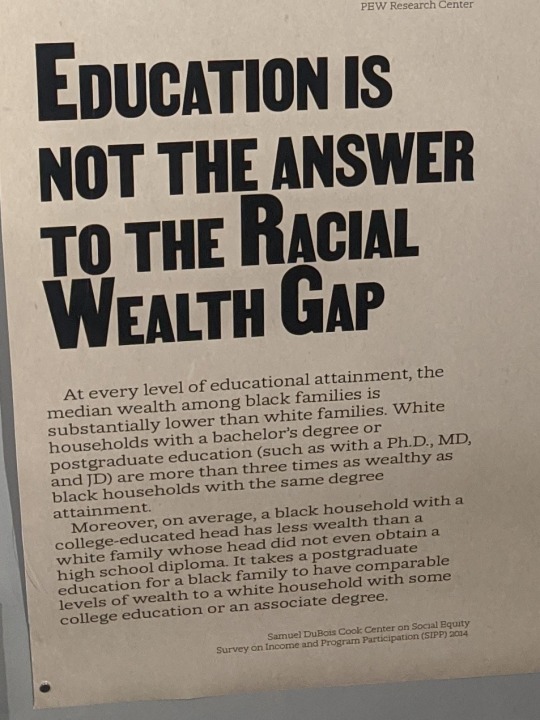
this was featured on a poster at my university, unfortunately i don’t recall the author
6 notes
·
View notes
Text
The word needs to spread. They are taking away human rights all across America. They took women's bodily autonomy. A 10 year old child was R*PED BY A FAMILY MEMBER and was DENIED ABORTION IN OHIO. They had to be sent out of state to get an abortion, but pretty soon,, there will be laws in place to make that unlawful. MEN ARE ASSAULTING WOMEN and TELLING THEM that they CAN'T WAIT FOR THEM TO HAVE THEIR CHILDREN. They are allowing R*PISTS visitation rights, they are taking away indigenous people's right to govern themselves, and they are TELLING US what they will be attacking next; Lgbtq+, and our RIGHT TO VOTE. Now isn't the time to stay silent. Get EDUCATED. Pay ATTENTION. And recognize that right now? Is not the time to stay silent.
Thank you.

#america#revolution#human rights#stop the hate#love is love#racial equity#women's rights#women's reproductive health#child rights#united we stand#we stand together#unite the world#protectwomensrights#protect human rights#protect trans kids#protect black people#protect indigenous people#fire is catching
5 notes
·
View notes
Text
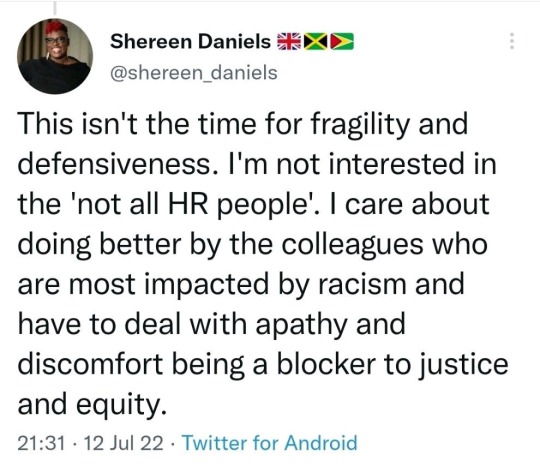
#Shereen Daniels#anti racism#anti bullying#anti harassment#notWiththeNotAll#quotations#beautiful quote#healingjourney#human love#racial justice#racial equity
1 note
·
View note
Text
South LA Cafe: Fighting Inequity Through Coffee, Community and Connection in Historically Black Community
South LA Cafe, founded by Joe and Celia Ward-Wallace, is on a mission to fight racial, social, economic and food inequity through coffee, community and connection.
The cafe was created to provide fresh, affordable and healthy food options for the South LA community, which has been a food desert for decades. The cafe has become a central hub in the community, with a focus on preserving the…

View On WordPress
#Celia Ward-Wallace#coffee#community#community hub#COVID-19 testing#cultural erasure#culture preservation#economic equity#food desert#food equity#fresh food#gentrification.#healthy food#Joe Ward-Wallace#racial equity#social impact#South Central LA#South LA Cafe#vaccines
0 notes
Photo

Evidence for Action: Innovative Research to Advance Racial Equity
Evidence for Action (E4A), a national program of the Robert Wood Johnson Foundation, funds research that expands the evidence needed to build a Culture of Health, with an explicit emphasis on advancing racial equity.
Applications are accepted on a rolling basis. Applicants will generally receive notice within six to nine weeks of applying as to whether they are invited to submit a full proposal. Full proposals will be due two months from the date of notification. Funding recommendations will generally be made within eight weeks of receipt of the full proposal. In circumstances when a research opportunity is time sensitive, reviews may be expedited. An explanation of the time-sensitive nature of the research should be included in the LOI application.
RFP: https://www.rwjf.org/en/library/funding-opportunities/2021/evidence-for-action--innovative-research-to-advance-racial-equity.html
DEADLINE: Rolling
1 note
·
View note
Text
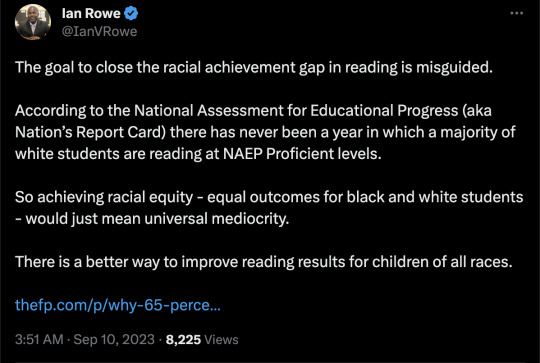
By: The Free Press
Published: Feb 11, 2023
Many parents saw America’s public education system crumble under the weight of the pandemic. Stringent policies—including school closures that went on far too long, and ineffective Zoom school for kindergarteners—had devastating effects that we are only just beginning to understand.
But, as with so many problems during the pandemic, COVID didn’t necessarily cause these structural breakdowns as much as it exposed just how broken the system was to begin with.
How broken? Consider the shocking fact that 65 percent of American fourth-grade kids can barely read.
American Public Media’s Emily Hanford uncovers this sad truth with her podcast, Sold a Story. She investigates the influential education authors who have promoted a bunk idea and a flawed method for teaching reading to American kids. She exposes how educators across the country came to believe in a system that didn’t work, and are now reckoning with the consequences: Children harmed. Tons of money wasted. An education system upended.
Guest host Katie Herzog talks to Emily about her groundbreaking reporting to ask how it all went wrong—and what we can do to make things right.
==


The people who can't teach kids to read are adamant that they need to teach intersectionality and Marxian power dynamics.
#Ian Rowe#racial equity#equity#reading#literacy#education#corruption of education#religion is a mental illness#Spotify
13 notes
·
View notes
Text
on racial representation in entertainment casting
Film and television production companies of both the old and new types have been working hard in the last ten years or so to create more equality of racial representation in their output, and this is on the whole a good thing. No liberal and substantially multiethnic society can afford to have an entertainment culture in which, to paraphrase the remark of a critic of the 2015 Academy Awards, members of a society's different races do not see themselves importantly reflected in mainstream entertainment culture, and in more than a niche or token way. (In other words, a tradition of comedies revolving around black culture -- much less long-ago trends like blaxploitation films, or an obligatory Asian cast member in every buddy movie and so on -- does not suffice.) Productions striving to make this adjustment mostly fall into several types ... of which the last presents a creative/reception puzzle of a sort.
(1) Historical productions, or films with any point to make about social issues, will show historically accurate racial distributions (eg, films about American slavery or Vietnam, or a film like Fruitvale Station) -- though these productions may also sometimes seek to upend historical expectations about those distributions (highlighting, for example, the role of African immigrants in Victorian England).
(2) Some productions seeking outright to confound conventional racial casting/character expectations will make clear choices -- eg, Hamilton, the "colorblind casting" of Bridgerton,* or Daniel Oyelowo in Lear.
(3) Productions set in the present day with no particular racial point to make -- a romantic comedy, a political thriller, etc -- will generally show a racially distributed cast, given a multiethnic setting (London, New York, etc), attempting -- with mixed results -- to push the tokenism of the nineties into more substantial territory.
But the puzzling case is (4) - science fiction or fantasy productions. These will generally try to show the same racial distribution as (3) -- central characters who are black, Asian, Latino/a, as well as white (usually, of course, with a complementary distribution of gender and perhaps age). The reason this distribution is significant here is that it is present no matter the other fictional facts about the society portrayed. Whatever the social problems of Earth in some distant future, whatever the ethnic tensions of a medieval fantasy kingdom, the casting overlays on these a harmonious, backgrounded, and fictionally insignificant distribution of race - which is nevertheless meant to carry the requisite political significance, creating a basis of real-world acceptability for the production.
In other words, there will never be a race-based conflict between a white and a black character in such a production. Unless, of course, there is a 'historical' point to make -- usually in a science fictional future, such as that of Blade Runner -- or in a production meant as a parable of real life race relations now, and such productions are rare: few creators seem to want to contemplate a future in which actual racial problems remain unsolved, even if conflicts between imaginary races are used as parables of the present day. (Though, interestingly, producers of shows such as that made after Atwood's The Handmaiden's Tale are willing to contemplate a future still predicated on gender inequity.)
The reason that this distribution produces an odd effect is that very often, and naturally enough from a creative perspective, some strife or other between fictional races, ethnicities or classes is depicted in such productions - the stuff of wide-angle drama. And yet each faction involved -- a working class on Mars, say, versus an Earth aristocracy in The Expanse or other productions, or tension between the races of Elves and Men in the new Tolkien serial -- shows a generally diverse real-life racial distribution among the actors cast. In other words, the actual race of actors is played in the fiction as a nonentity, and so real-life race is never used to show the fictional divisions. (Cases where this has happened, as when Peter Jackson's Lord of the Rings films very nearly fell into the trap of Tolkien's midcentury racial stereotyping of certain Middle Earth peoples, or with George Lucas' disastrous Phantom Menace-era use of human racial types to characterize various alien peoples, can be regarded as important lessons, and dead ends.)
The oddness of viewing these programs is that perfect racial harmony, diversity, assimilation, and equity seem to be assumed as both foundational and irrelevant to whatever else is going on. Eg, perhaps Men and Elves are again headed for war in The Rings of Power, but there are real-life skin colors and racial traits of all types to be found in both camps, working side by side as fictionally appropriate -- so we get to enjoy the drama of the fictional conflict while also enjoying a fictional resolution of the real-life ones. It is the latter half of that formula, of course, that may present difficulty, but certainly it is currently hard to imagine an alternative.
*Bridgerton presents an interesting and increasingly typical case: the casting, its champions say, draws attention to the underacknowledged role of black people in Regency England (a variety of the (1) type above) -- and this is completely plausible. What is less plausible is the claim of which many supporters stop barely short, that what is shown is actually historically accurate. The production exaggerates to make a point, nor does it require a whole series (set in a country where slavery was never territorially legal) to make the point that "black people weren't only slaves," and that does seem to be some people's justification for the production.
(In one way, such a justification is analogous to the sleight of hand in the fantasy / sci fi shows, where one says, let's take on the important issue of fantasy racial conflicts, in a medium undergirded by real racial harmony ...)
Why the historical veracity claim should be important to the politics at stake is a mystery - a fictionalization of history in order to turn the prism on race is completely valid, and needs none of the memory-holing of actual history to be important and urgent.
0 notes
Text
Racial equity in marijuana pardons requires states’ action
Racial equity in marijuana pardons requires states’ action
By pardoning Americans with federal convictions for marijuana possession, President Joe Biden said he aimed to partially redress decades of anti-drug laws that disproportionately harmed Black and Latino communities.
While Biden’s executive action will benefit thousands of people by making it easier for them to find housing, get a job or apply to college, it does nothing to help the hundreds of…

View On WordPress
0 notes
Text
Ya know what’s fucking dumb about the US? “Treat people like people” is obvious for some of the population and controversial for a different part of the population. Bruh why? How hard is it to look at a human person and go “wow. That’s a person. I will respect their personage because there’s no reason for me not to”? Like. Why are there racists? Why are there homophobes? Transphobes? What belief system (besides cherry picked southern Baptist bullshit) causes this? If morality says something about one group of people (say, white Christians) then why would it say something different about another (let’s say, Jewish people)? Hating on hate groups is fine, in my opinion. Hating people who aren’t doing anything to hurt anyone else? Why even waste the energy? Where’s the logic?
#triggerwarning#tw#just in case tw#equal rights#racial equity#blm#black lives matter#pride#queer pride#gay#gaypride#white priveledge#absolutely exists
1 note
·
View note